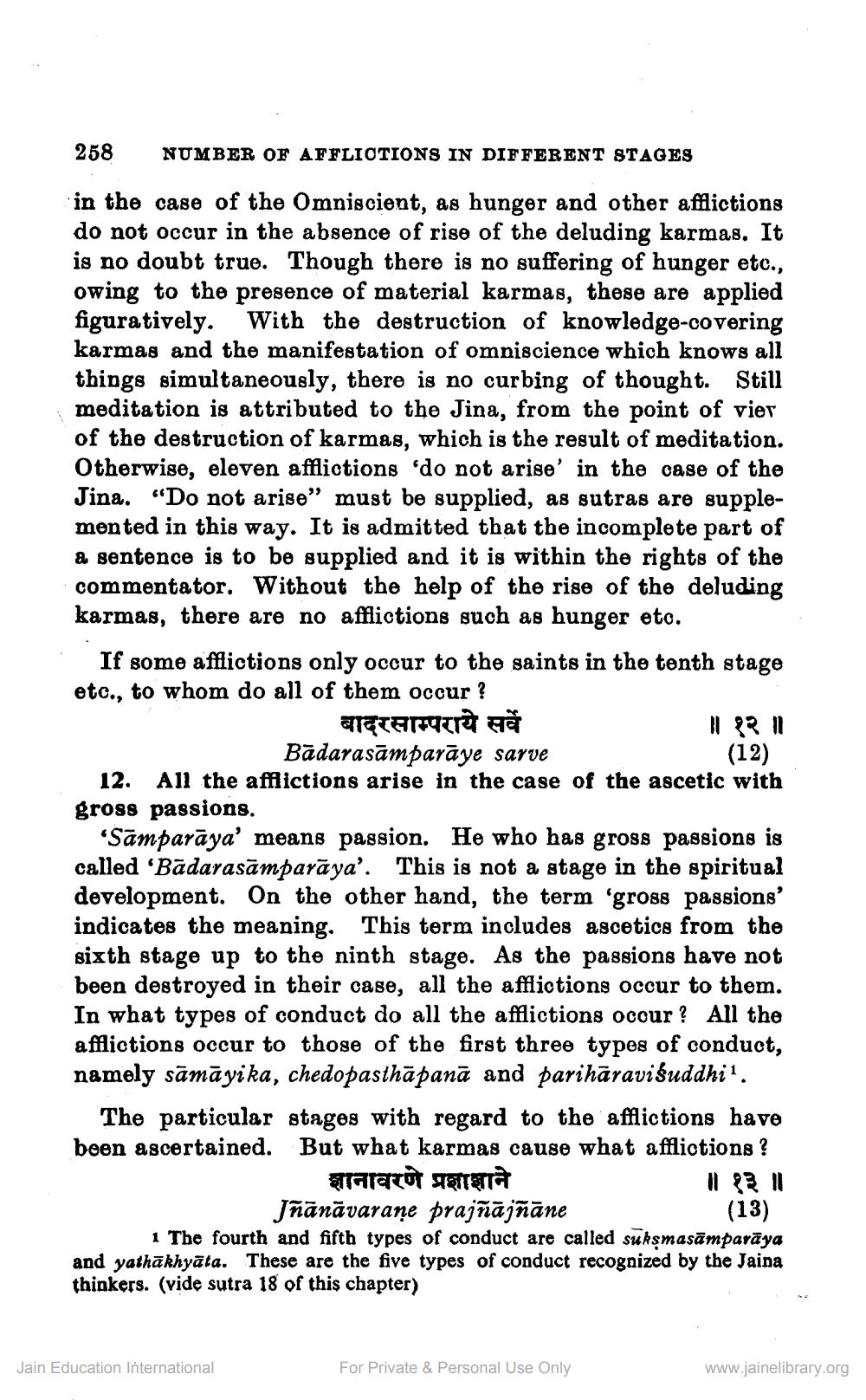________________
258
NUMBER OF AFFLICTIONS IN DIFFERENT STAGES
in the case of the Omniscient, as hunger and other afflictions do not occur in the absence of rise of the deluding karmas. It is no doubt true. Though there is no suffering of hunger etc., owing to the presence of material karmas, these are applied figuratively. With the destruction of knowledge-covering karmas and the manifestation of omniscience which knows all things simultaneously, there is no curbing of thought. Still meditation is attributed to the Jina, from the point of vier of the destruction of karmas, which is the result of meditation. Otherwise, eleven afflictions do not arise' in the case of the Jina. "Do not arise" must be supplied, as sutras are supplemented in this way. It is admitted that the incomplete part of a sentence is to be supplied and it is within the rights of the commentator. Without the help of the rise of the deluding karmas, there are no afflictions such as hunger etc.
If some afflictions only occur to the saints in the tenth stage etc., to whom do all of them occur ? बादरसाम्पराये सर्वे
Il 82 11 Bādarasāmparāye sarve
(12) 12. All the afflictions arise in the case of the ascetic with gross passions.
'Samparāya' means passion. He who has gross passions is called 'Bādarasāmparāya'. This is not a stage in the spiritual development. On the other hand, the term 'gross passions' indicates the meaning. This term includes ascetics from the sixth stage up to the ninth stage. As the passions have not been destroyed in their case, all the afflictions occur to them. In what types of conduct do all the afflictions occur? All the afflictions occur to those of the first three types of conduct, namely sāmāyika, chedopasthāpanā and parihāravisuddhi'.
The particular stages with regard to the afflictions have been ascertained. But what karmas cause what afflictions ?
garaTot era Jmãnămarane prayfamame
(13) 1 The fourth and fifth types of conduct are called suksmasämparāya and yathākhyāta. These are the five types of conduct recognized by the Jaina thinkers. (vide sutra 18 of this chapter)
Jain Education International
For Private & Personal Use Only
www.jainelibrary.org




